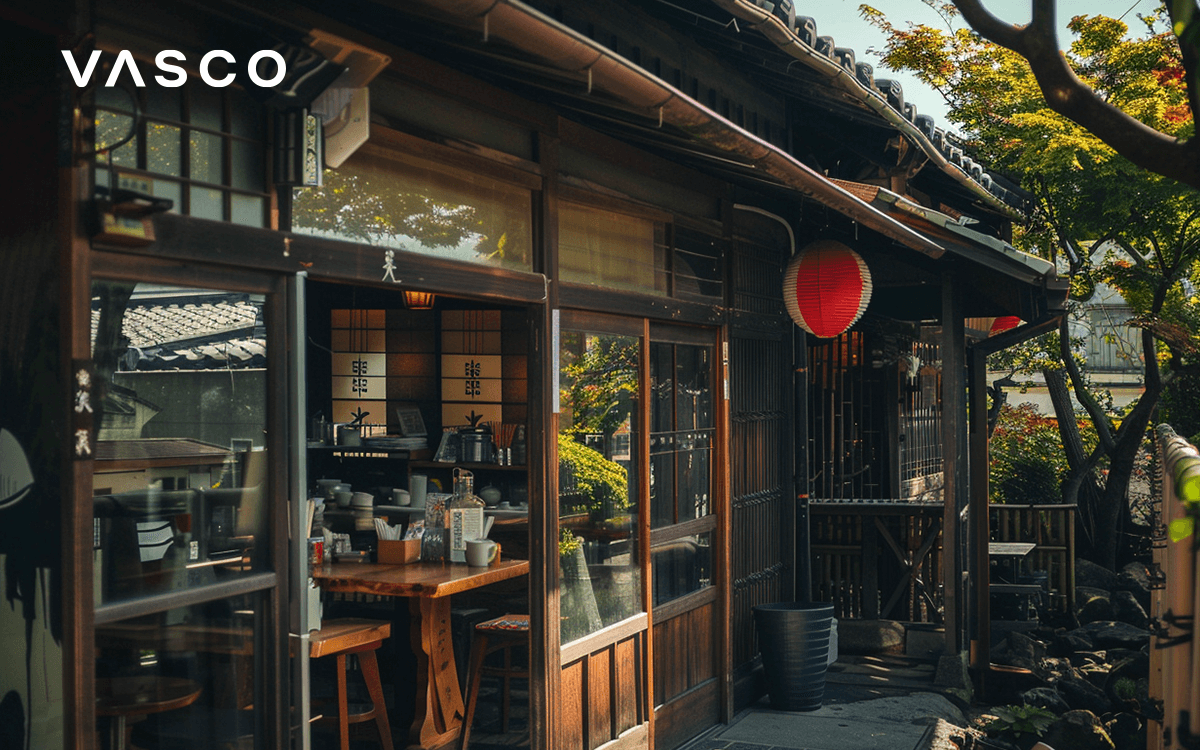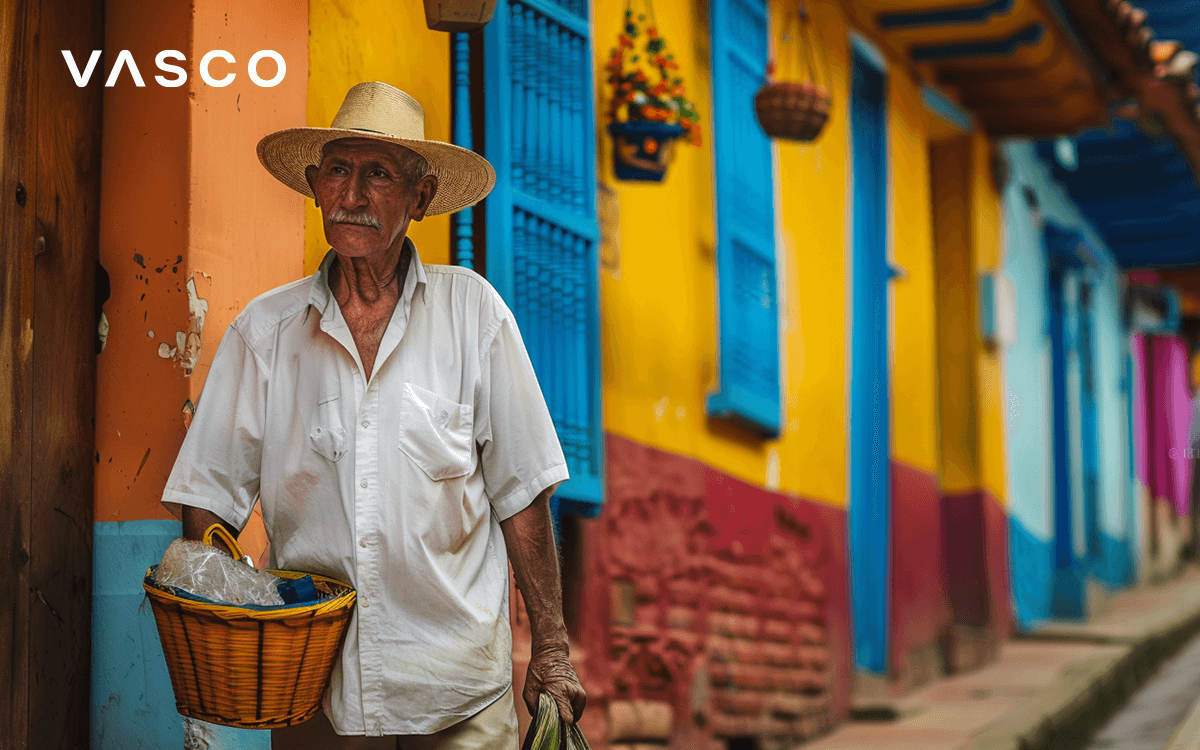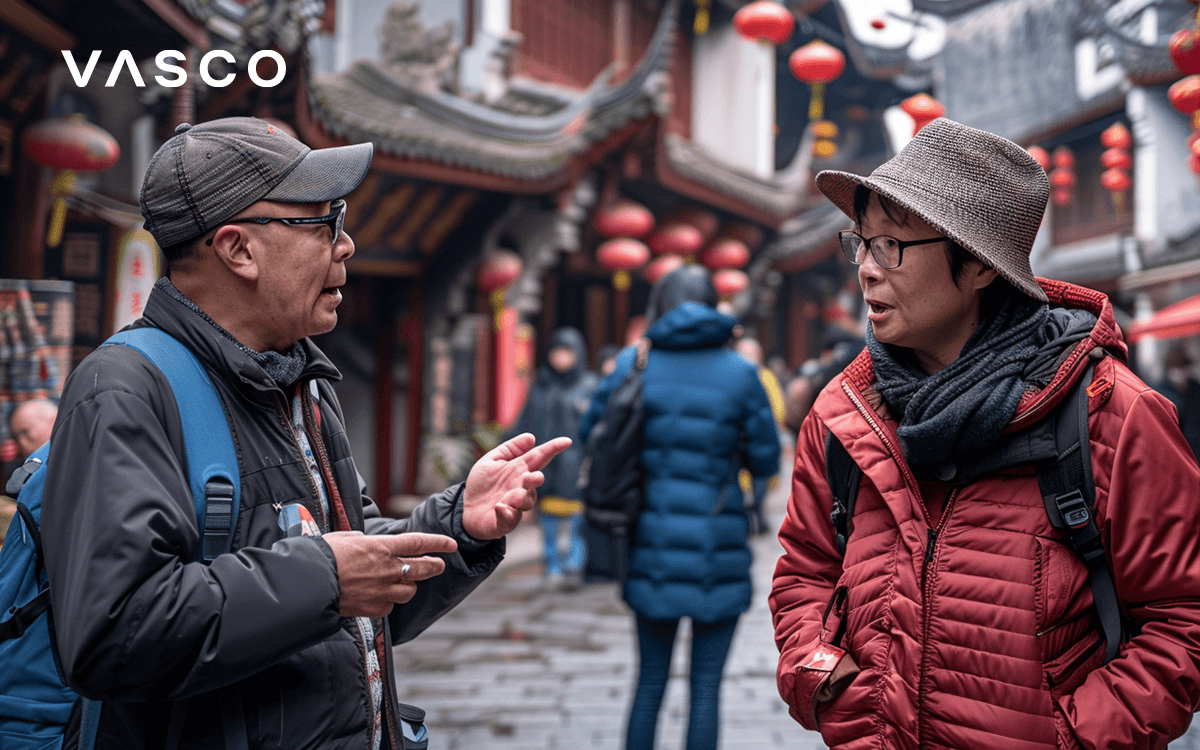Embarking on a journey to other countries can be an exhilarating experience, but it’s crucial to tread carefully, respecting the local customs and traditions of each destination.
It may be wise knowing, for instance, what not to do in Dubai when planning vacation in this beautiful city. So, when visiting Dubai, you should remember about all the rules that apply to everyone like, for instance, avoiding public displays of affection.
Here’s a guide to what not to do in each respective country, ensuring a smoother and more enjoyable international adventure. Stay with us if you want to learn more!
We’ll focus on the following topics here:
- What not to do in Dubai
- What not to do in Japan
- What not to do in France
- What not to do in Greece
- What not to do in Mexico
- What not to do in Singapore
- What not to do in Vietnam
- What not to do in Morocco
- What not to do in India
- What no to do in Turkey
- What not to do in Qatar
- What not to do in Portugal
- What not to do in Colombia
- What not to do in Brazil
- What not to do in Norway
- Things not to do in Saudi Arabia
- What to avoid in China
So without further ado, let’s embark on a journey and see what not to do when traveling abroad. Having read this article, you’ll know what to avoid when traveling outside your home country or even how to survive in a foreign country.
FAQ:
What shouldn’t you do when traveling abroad?
What shouldn’t you do in Dubai?
What shouldn’t you do in Japan?
What shouldn’t you do in France?
What shouldn’t you do in Vietnam?
What shouldn’t you do in Mexico?

Table of Contents:
Things Not To Do in Other Countries: A Journey Around the World
Some local residents are less sensitive to cultural nuances than others, however, it is worth remembering that certain behaviors are to be strictly avoided.
Let’s explore things banned in other countries. We’ll focus here on some of the most popular tourist destinations around the world.
So, what are things you should never do in other countries? Let’s see!
What Not To Do in Dubai: Avoid Public Displays of Affection
Let’s start our journey through things banned in other countries in the United Arab Emirates.
While visiting Dubai, one can definitely marvel at the dazzling skyline with Burj Khalifa, the world’s tallest tower, and opulent lifestyle. Remember, however, that the Emirate culture is very conservative.
So, when it comes to things not to do in Dubai, you should avoid public displays of affection, especially during the holy month of Ramadan. Dress modestly, particularly when visiting religious sites, to show respect for the local culture.
Now that you know what not to do in Dubai, it is also worth remembering that you can legally drink alcohol in Dubai, however, you need to consume alcohol in the privacy of your own accommodation.
What Not To Do in Japan: Don’t Tip in Restaurants
Another place in our journey through things banned in other countries is Japan. So, what not to do in Japan as a tourist?
In the Land of the Rising Sun, local rules say that tipping is not only uncommon but can be considered rude.
Resist the urge to tip at restaurants or hotels, as it goes against Japanese customs. Instead, express your gratitude through a polite bow or a simple “arigato.”

What Not To Do in France: Don’t Rush the Culinary Experience
Next place in our journey through things not to do in other countries is France.
France is renowned for its culinary delights, and the French take their meals seriously. Avoid rushing through your meals; instead, savor each course and enjoy the leisurely pace.
So don’t rush the waiters and enjoy your meals peacefully – in France, eating is considered a slow experience.
Also, when it comes to what not to do in France, refrain from asking for substitutions in a restaurant—trust the chef’s expertise.
What Not To Do in Greece: Don’t Show an Open Hand
When it comes to the things not to do in other countries, we need to visit Greece.
The warm hospitality of Greece is unmatched, but there are cultural nuances to be aware of. You should definitely avoid gesturing with an open hand, as it may be considered disrespectful.
This gestured is called “moútza” and is considered disrespectful. It may be thought of as an equivalent of showing someone a middle finger.
Also, when it comes to what not to do in Greece, refrain from pointing your feet at religious icons, a gesture seen as impolite.
What Not To Do in Mexico: Avoid Addressing People By Their First Names
Let’s continue our journey through things not to do in other countries and go to Mexico.
When it comes to what not to do in Mexico, avoid addressing someone by their first name (which is common, for instance, in the United States), and when eating with someone, be sure to share some food with others. Otherwise, you may be seen as a rude person.
Also, in Mexico, Siesta seems to be a thing of the past, especially in big cities. However, those who can, still close their businesses in the early afternoon to have dinner at home and take a nap.
What Not To Do in Singapore: Don’t Chew Gum
Singapore has strict laws regarding chewing gum ever since 1992. Avoid carrying or chewing gum in public spaces, as doing so can result in fines.
Be aware of and adhere to local regulations to ensure a trouble-free visit.

What Not To Do in Vietnam: Avoid Disrespecting Elders
Next place in our journey through things not to do in other countries is Vietnam.
In Vietnamese culture, elders are highly respected, and showing proper deference is crucial. Slightly bow on greeting an elder person or shake his/her hand when they extend their hand first.
Avoid addressing someone older by their first name, opting instead for appropriate titles like “aunt” or “uncle.” This small gesture goes a long way in fostering positive interactions.
Also, when it comes to what not to do in Vietnam, the most offensive disrespect toward an older person is to touch his or her head.
What Not To Do in Morocco: Avoid Aggressive Bargaining
Next, on our journey through things banned in other countries is Morocco.
While haggling is a common practice in Moroccan markets, do it with respect and a smile. Avoid aggressive bargaining, as it can be seen as disrespectful.
Engage in the process as a friendly exchange rather than a heated negotiation.
What is more, remember that Morocco is a Muslim country. It is important to dress conservatively and with modesty. Also, when you get invited to someone’s home, be sure to take your shoes off before entering it.
What Not To Do in India: Don’t Wear Revealing Clothing
When it comes to things not to do in other countries, it’s crucual to visit India. It is a land of diverse cultures and religions.
When visiting temples or other holy sites, dress modestly. Avoid shorts, sleeveless tops, and revealing clothing to show respect for the sacred spaces.
Also, the same way as in Morocco, avoid wearing your shoes inside someone’s home. Besides, don’t eat food or pass objects with your left hand. The left hand is considered unclean and is associated with activities reserved for bathroom visits.

What Not To Do in Turkey: Don’t Show the Bottoms of Your Feet
Next, on our journey through things banned in other countries we have Turkey.
In Turkey, pointing the sole of your shoe at someone is considered offensive. So avoid crossing your legs in a way that shows the bottom of your feet when sitting.
Be mindful of this gesture to maintain a positive and respectful interaction.
It is also important not to wear shoes at the places of worship as well as avoiding obscuring the view of someone who is praying.
What Not To Do in Qatar: Don’t Wear Swimsuits & Revealing Clothing
When it comes to things not to do in other countries, we should definitely go to Qatar.
Immodest clothing are not well-received in Qatar, so remember to dress respectfully. It is important to cover one’s knees and shoulders, so no short dresses and no clothing without sleeves. Also, remember that swimsuits are forbidden on the beaches on Qatar.
Taking photos is also prohibited is various religion-related locations in Qatar.
Avoid any behavior that may be deemed inappropriate in public, ensuring that you adhere to the conservative values of the country.
What Not To Do in Portugal: Don’t Rush the Sesta
Portuguese siesta, known as “sesta,” is a cherished tradition, however, not practised by everyone.
Nevertheless, the Portuguese people eat their lunch at 1 p.m. and the shops as well as restaurants close at around 3 p.m. They usually don’t open untill 7 p.m.
Avoid making loud noises or engaging in disruptive activities during this time. Respect the local rhythm and enjoy a leisurely break.
What is more, the Portuguese residents disapprove of excessive alcohol consumption, since it may cause uncontrollable behaviour. The locals really appreciate a safe and enjoyable environment.
What Not To Do in Colombia: Don’t Assume Homogeneity
Next, on our journey through things banned in other countries we have Colombia. Colombia boasts rich cultural diversity.
Avoid assuming that all regions and people are the same. Take the time to learn about the unique customs and traditions of each area you visit.

What Not To Do in Brazil: Avoid Favelas
While Brazil is known for its vibrant culture, it may be better to avoid favelas (urban slums).
Avoid entering these areas without a local guide to ensure your safety and show respect for the residents.
Also, avoid walking alone or using a subway at night. Don’t keep valuable possesions in your pocket, but use a sling bag instead. What is more, beware of pickpocketers in key tourists’ destinations.
What Not To Do in Norway: Don’t Drink Alcohol on Weekdays
In Norway, alcohol consumption on weekdays is not seen well. Also, if you want to buy it, don’t wait until late as Norway has very strict rules about selling alcohol.
You won’t be able to buy anything stronger than coffee after 8 p.m. on weekdays, 6 p.m. on Saturdays and not at all on Sundays.
Also, some bars are not allowed to serve alcohol, especially hard liquor, in the evening, for instance, after 9 o’clock.

Things Not To Do in Saudi Arabia: Avoid Revealing Clothing
Saudi Arabia has conservative dress codes, especially for women. Avoid revealing clothing and adhere to the local standards. Women should choose clothes that don’t reveal their knees and cover their heads.
Men should also avoid wearing shorts.
Familiarize yourself with the cultural norms to ensure a respectful and comfortable experience.
What not to do in China: Don’t Discuss Sensitive Political Topics
When traveling to China, it’s essential to be mindful of cultural nuances and avoid certain behaviors that may be considered disrespectful or inappropriate.
Firstly, it’s crucial not to discuss sensitive political topics openly, as this could lead to discomfort or strained conversations.
Additionally, avoid tipping in restaurants, as it is not a common practice in China and may be met with confusion.
Don’t point directly at people with one finger, as these actions may be perceived as impolite.
Adhering to these cultural considerations will contribute to a more enjoyable and respectful travel experience in China.

Embracing Cultural Sensitivity for a Seamless Journey
In this article, we learned about various things banned in other countries. We learned, for instance, about things not to do in Dubai, what not to do in Japan and what not to do in France.
As you navigate the diverse tapestry of cultures around the world, it becomes evident that travel is not just about exploring new landscapes but also about immersing yourself in the rich tapestry of traditions and customs.
Each country offers a unique experience, and respecting the local way of life is paramount for a harmonious journey. Remember that etiquette in other countries may be different than the ones in your own.
By highlighting what not to do in various destinations, we’ve aimed to guide you through potential cultural pitfalls, ensuring that your travels are filled with positive interactions and memorable experiences.
Be respectful of foreign customs
Remember that cultural sensitivity goes beyond following a set of rules; knowing what not to do in Dubai, what not to do in Japan or what not to do in Morocco may not be enough. Being respectful also involves a genuine interest in understanding and appreciating the perspectives of the people you encounter.
- Whether you find yourself in the bustling markets of Morocco, the serene temples of Japan, or the vibrant streets of Brazil, the key to a successful international journey lies in your ability to adapt and show respect.
- From modest dressing in conservative societies to refraining from tipping in Japan, these nuances are the threads that weave the fabric of a truly immersive travel experience.
- As you embark on your global adventure, embrace the opportunity to learn, grow, and connect with the world.
- Engage in conversations, share smiles, and be open to the beauty of diversity. Every “don’t” outlined in this guide is a chance to build bridges, foster understanding, and make lasting memories.
- Remember, travel is not just about the destinations; it’s about the journey, the people, and the stories that unfold along the way.
So, set forth with an open heart, a curious mind, and a deep appreciation for the kaleidoscope of cultures that make our world endlessly fascinating.
Safe travels, and may your global exploration be filled with respect, understanding, and a celebration of the incredible diversity that makes our planet truly extraordinary.
And if you need a perfect travel companion, try Vasco smart translator. Offering many cutting-edge features, such as picture text translator, voice translator and multilingual chat, Vasco Translator will tackle language challenges for you!
Navigating Cultures: What Not To Do When Traveling Abroad
| Country | Don’t Do | Why | Alternative |
|---|---|---|---|
| Japan | Tip | Considered rude | Express gratitude verbally |
| India | Eat with left hand | Considered unclean | Use right hand only |
| Thailand | Touch someone’s head | Sacred body part | Avoid physical contact |
| UAE | Public displays of affection | Illegal | Keep affection private |
| China | Stick chopsticks upright in rice | Resembles funeral rituals | Lay them across the bowl |
NUTSHELL:
This comprehensive guide provides insights into cultural etiquette and what not to do when traveling to various countries around the world. From respecting conservative norms in Dubai and avoiding tipping in Japan to savoring meals in France and respecting elders in Vietnam, the guide covers diverse cultural nuances. It emphasizes the importance of modesty in India and Turkey, dressing conservatively in holy places, and navigating sensitive topics in China. The guide also sheds light on regional specifics, such as siestas in Portugal and cautious exploration of Brazilian favelas. Embracing cultural sensitivity is highlighted as essential for a seamless and respectful global journey.




